How to Take Notes from Books
It is frustrating to realize a few months after reading a book that you don't remember anything from it. I started taking notes in books to avoid this but found other nice side effects on the way.

I love reading. Books are my preferred medium of choice. A good old paperback helps me eliminate distractions when engaging with great ideas. The are no distracting links and memes I have to look up.
Books are one of the most thought-through and idea-rich mediums. But you need to dedicate more time to a book than for a random video or a movie.
So if the ideas of books are invaluable and you want to invest time into getting through a book, then you should be interested in remembering the takeaways.
Reading without remembering is a waste of time, especially when it comes to non-fiction books.
Why should you take notes from a book?
Taking notes while reading a book can help you
- Remember: Reading by itself is a passive activity. Though we are considering reading "productive", in reality, if you don't take steps to internalize the stories and use the concepts of the book, then you were only entertained by them for a short time. Making notes is the step most of us need to get the most out of books. Taking and revisiting notes helps us remember more.
- Get more out of ideas: Ideas don't live in isolation. You can read about conflicting stories and world views, two sides of the same coin, and wonder what is happening. Taking notes invites criticism in the process of reading. Taking notes means you don't take everything that the author says at face value. You think it through, generate your own questions and maybe you come up with something new.
- Create a catalog of concepts: Whether you are crafting LinkedIn posts, creating Youtube videos, or are engaged in academic research, having concepts from you read documented and valuable quotes saved can improve your thinking and the quality of work you do.
Regardless that you read for entertainment or to learn, taking notes can make your experience better. It can help you conserve the moment and take a screenshot of the emotions you had while reading the book.
I write detailed notes on non-fiction books and jot down some ideas, and expressions when reading a novel. For me even taking notes on novels and fiction proved valuable, especially when later I reread a book.
My notes captured a part of me in the past.
Different quotes resonated, and I had different opinions at each reread. Without notes, I would slip through this realization.
How to make notes while reading?
There are several different approaches when it comes to note-taking. I read about insanely complex systems including APIs and a plethora of software. On the other hand, accomplished authors built careers on paper notes.
Below I share my system when it comes to taking notes on books.
It is not THE perfect method of taking notes on books, but it is something I improved over the years. This setup provides me value.
I read 60+ books with this approach and used its artifacts to write a few hundred articles. Though the most tangible impact, the learnings I made thanks to the process of making notes is not something I can put a number beside.
I hope to share my method of taking notes serves as an inspiration to make your book note-taking game to the next level.
My system of taking notes on books:
- Highlight and Comment
- Feed My Zettelkasten
- Rethink & Summarise
1. Highlight and Comment
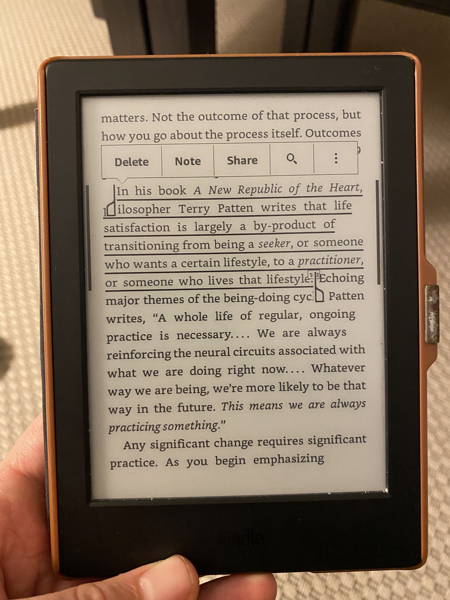
With taking notes on books my main goal is to extract interesting ideas worth remembering.
My main source of notes is simple highlights.
There are several articles about the pointlessness of highlighting and some parts of them are legit. If your process of taking notes is not more than saving highlighted passages then you are rarely getting more out of the book than not focusing on notes at all.
I use highlights as the first step of my note-taking pipeline.
If a sentence triggered an idea or a question in my head, I write a comment on the margin or I make a related note when I am reading on an e-reader.
After finishing a book I either have highlighted sentences and commented margins in paper books, or I have highlights and comments saved on my Kindle.
2. Feed My Zettelkasten
To process the notes I took while reading, I am using the Zettelksten method.
Zettelkasten is a method for managing knowledge, a note-taking system that focuses on linked ideas.
I have written about what the heck is Zettelkasten earlier:
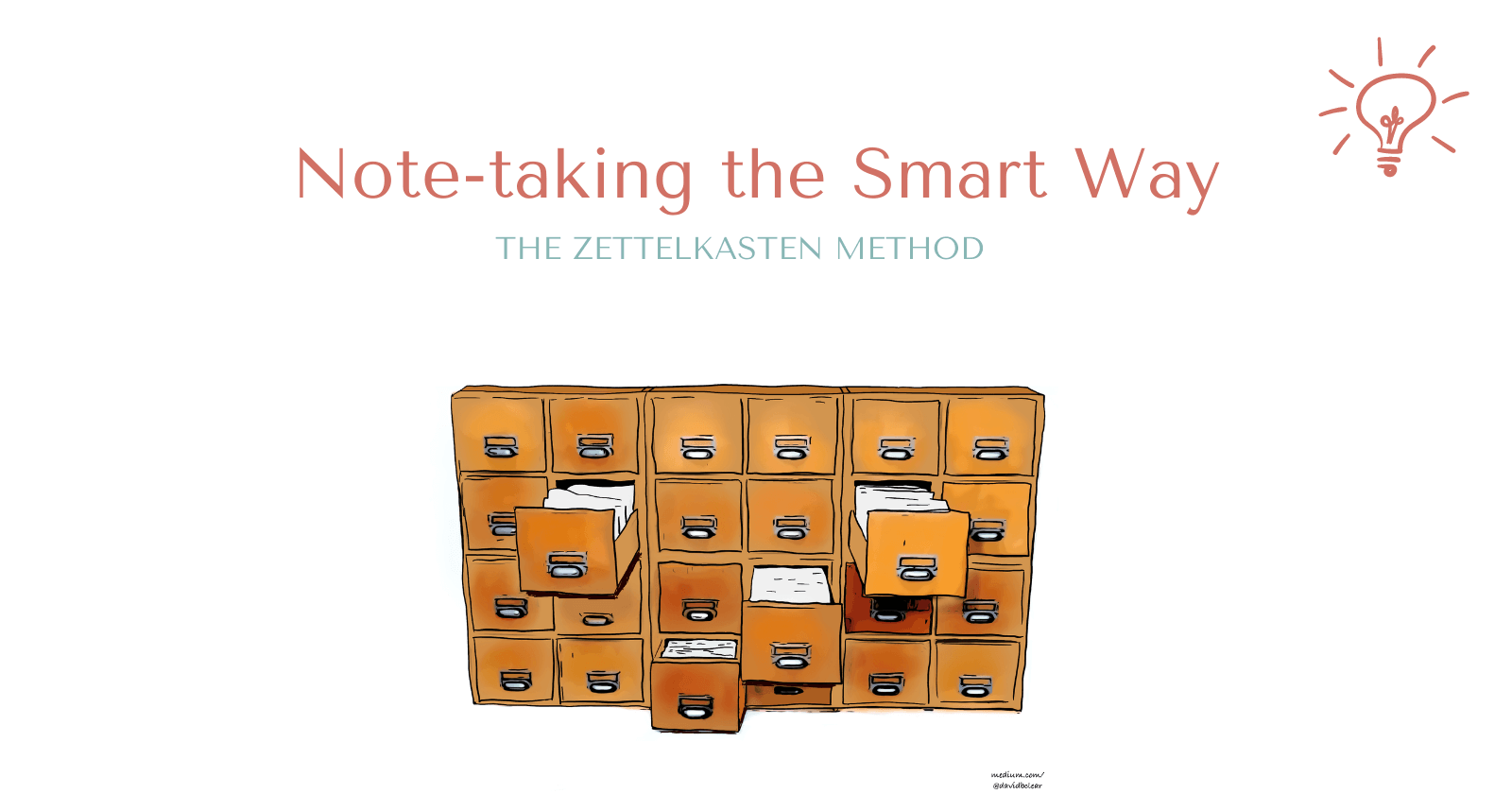
But coming back to taking notes for books with the Zettelkasten method.
First I create one note in Obsidian for the book. The separate notes for the ideas from the book will branch out from this book page / note.
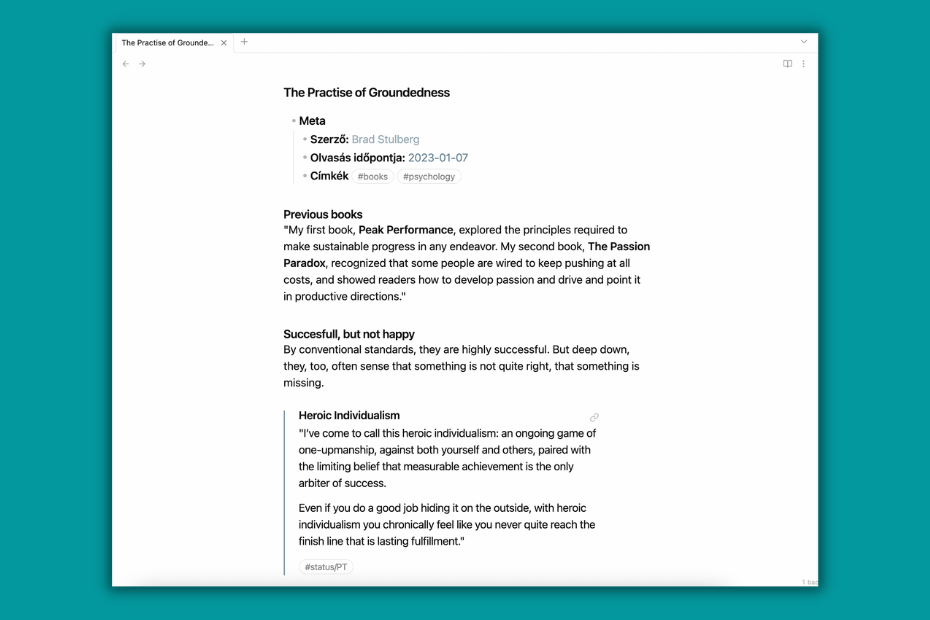
Then I export my highlights and transform them into Fleeting Notes and Literature Notes.
For the big ideas, stories worth noting, and resources that I am likely to use in the future I create new pages/notes.
These Fleeting Notes can be interpreted outside the context of the book and I can categorize them and connect them with other ideas.
Even if the source of the idea is one given book I always rephrase the concept and write the top of the note with my own words.
Writing the note in my own words helps to test whether I truly understand the concept of the note. Also putting some thinking into the process of creating notes helps me to better recall the idea in the future.
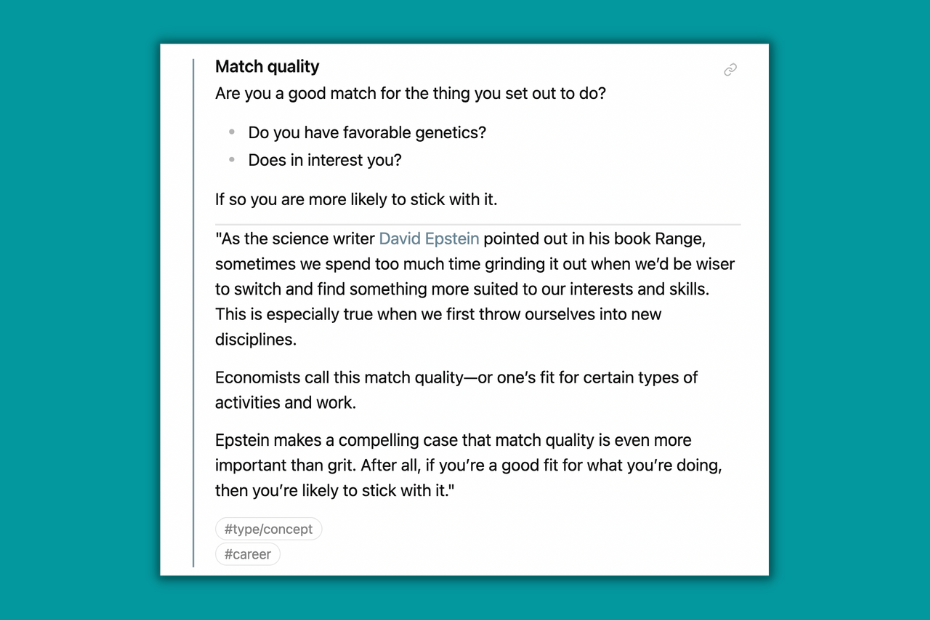
There are highlights which I do not translate into Fleeting Notes, but they add value in the context of the book. Previous books of the author, the outline of the book, and compelling quotes that I want to remember but they don't necessarily deserve a separate note.
These are called Literature Notes.
They are useful when read in the context of the book, but they don't necessarily encompass a big idea to create a separate page for them.
When I have my Fleeting and Literature Notes in place, I abandon them for a few days just to pick them up when I am ready to re-access them.
3. Rethink and Summarize
After leaving the Fleeting Notes and letting time do its magic, I look at notes with a different lens. Some notes became less important and I delete them, while some previously less important literature notes sparked new ideas.
I challenge the idea within the notes by writing questions, I categorizing them based on topic and I connect them with other relevant notes for my knowledge vault.
The notes that make through this process will get a #PT tag.
These are the Permanent Notes that I will revisit frequently in the future.
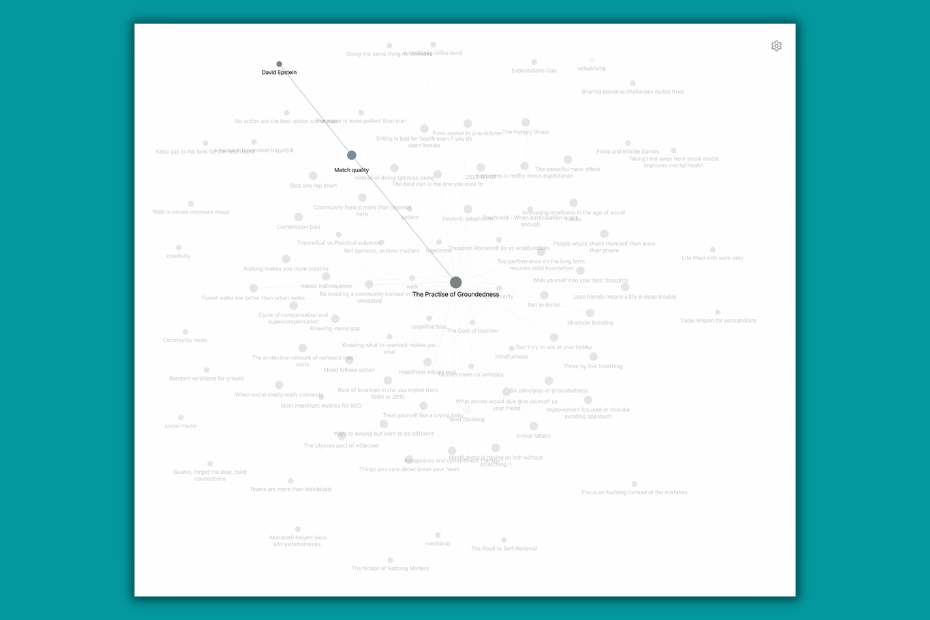
Writing Book Summaries
Rephrasing notes are useful but writing a comprehensive summary with your own words about a book that contains so many ideas helps to reassess the content of the book.
Writing an article I intend to publish on the internet pushes me further to ask questions and rethink what I just read and what the knowledge I acquired can be used for (if can be at all).
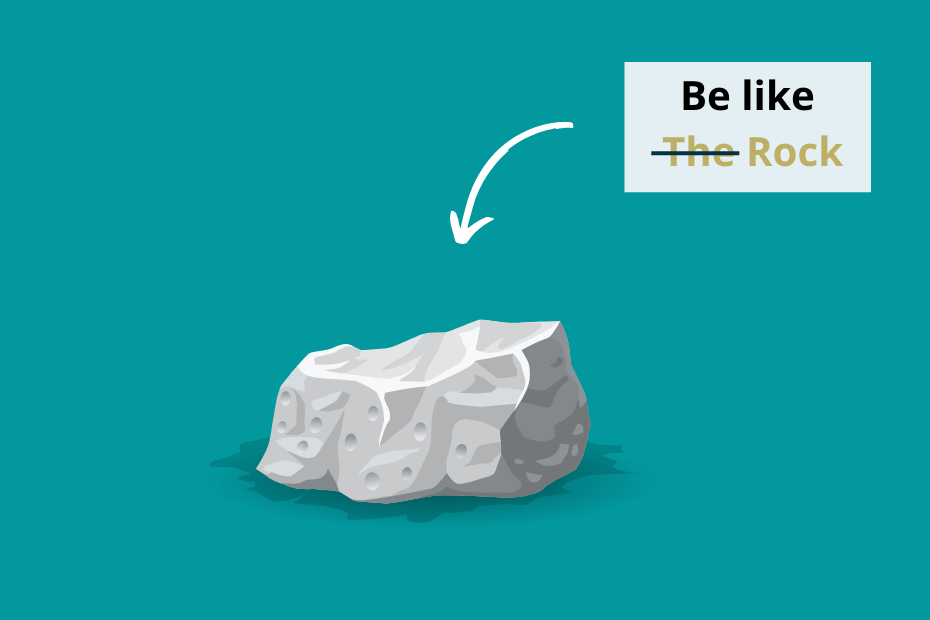
I spend a fair amount of time tinkering with my notes on books. I enjoy the process, but if you want to take another approach you can still make a lot out of books.
Save, Think, Rethink.
These are the three steps that are worth considering when you want to save the wisdom of a book. You don't need difficult personal knowledge management systems, a specific app, or even electricity.
You can do all of these with pen and paper.
Thoughts on taking notes on Paper, E-Book, and Audiobook
I love reading paper books.
It is in general a better experience for me. The smell of the book, the visible progress, and the absence of distractions are a nice treat. But when it comes to taking notes, paper books are the least productive choice.
Previously I underlined passages I want to save and when I finished the book I typed all the highlights to be able to "export" them to my PC.
Now I take a photo of the pages that contain highlights and use the text recognition feature of my phone. Then copy and paste the text to a doc and I am ready.
But even with this improvement, the alternatives of taking notes on other formats are much better.
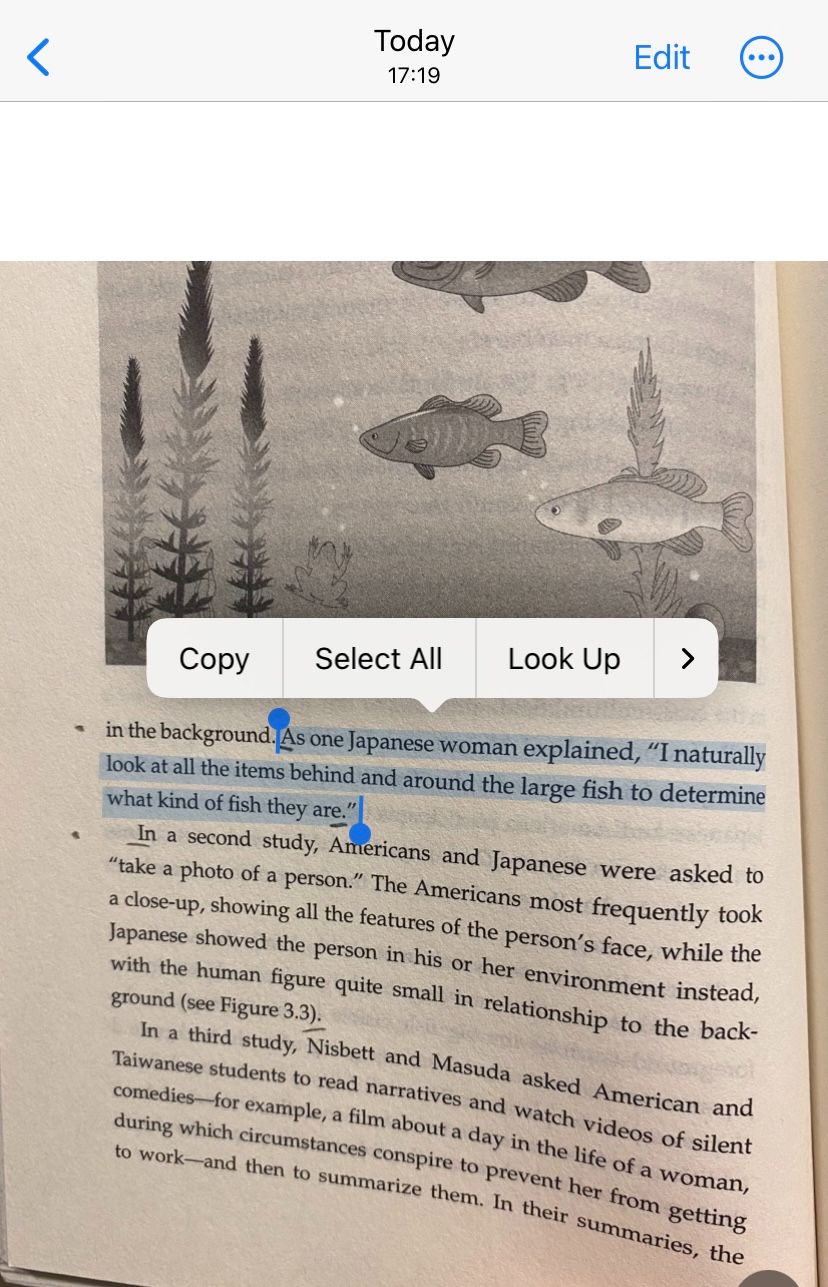
With ebooks taking notes is a smooth process. You highlight the passage on your device and it arrives in your doc/e-mail.
You can write notes while listening to an audiobook, but to have verbatim notes, you often need to replay parts of the book. It is not a bad idea to write on paper while listening to an audiobook, but transcribing the notes later is a pain.
Writing with another digital device, or typing on your phone simply ruins the experience of listening to a book for me.
I think an e-book is the best format when it comes to taking notes while reading.
Frequently asked questions about notes on books
Is it worth taking notes on books?
Taking notes while reading can help you understand the concepts of the book better, remember more, and create a catalog of ideas you can use later for creating content.
How do you write notes on a book?
You can underline sentences, write comments on the margin, create summaries at the end of each chapter or write a short summary after reading the book.
What to write when taking notes on a book?
If you take notes while reading books it is worth concentrating on concepts worth remembering, quotes you like, and resources you may use in the future.
Why do people use sticky notes on books?
With sticky notes, you can add notes to given sentences of the book without writing directly on the margins of the book. It comes in handy if you have a borrowed book.
Is it better to take notes on paper or book?
If you take notes on paper then you can reread a book without your past notes impacting your experience. Though writing on the margin of the book eliminates friction and makes taking notes while reading more enjoyable.




